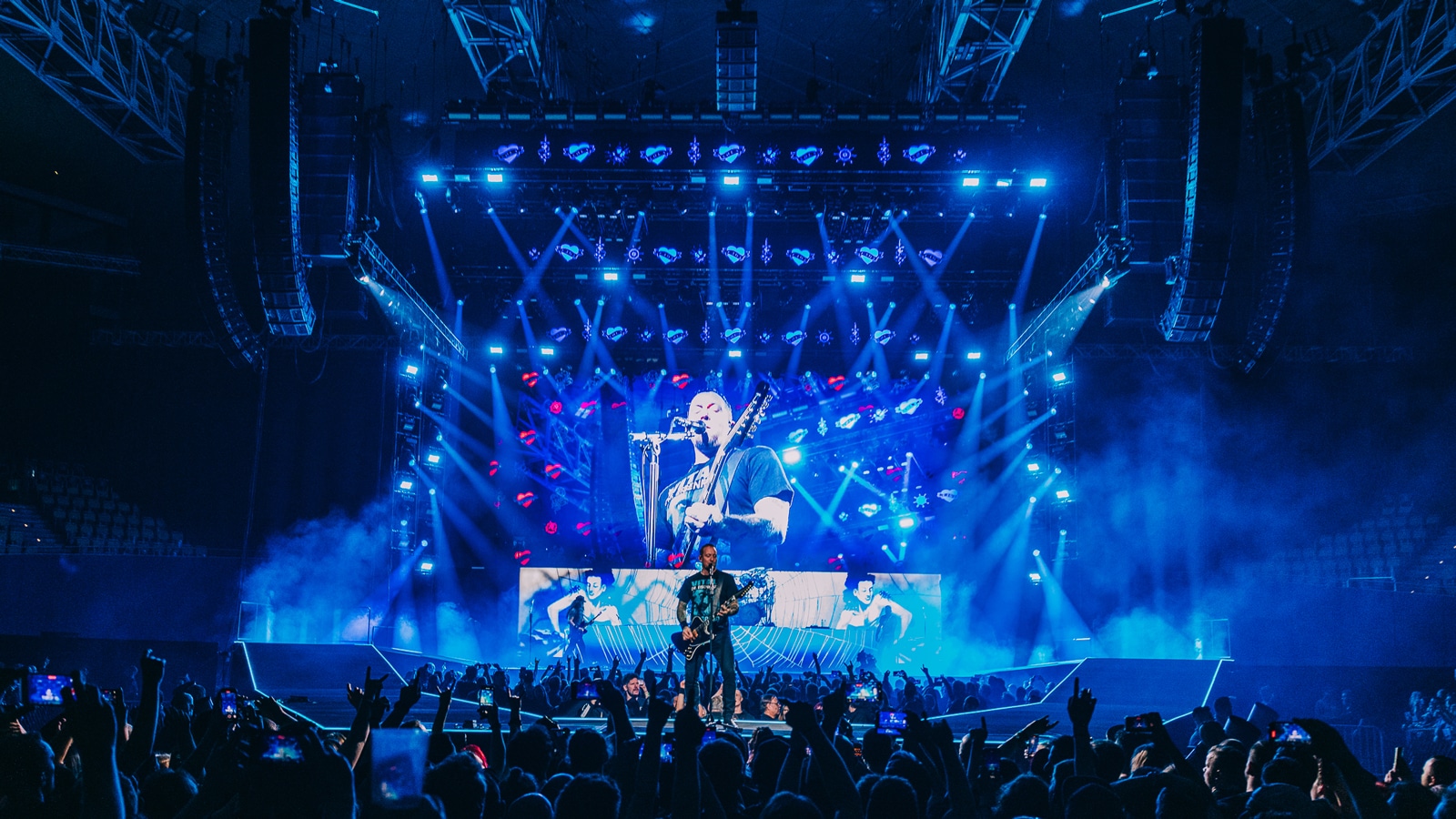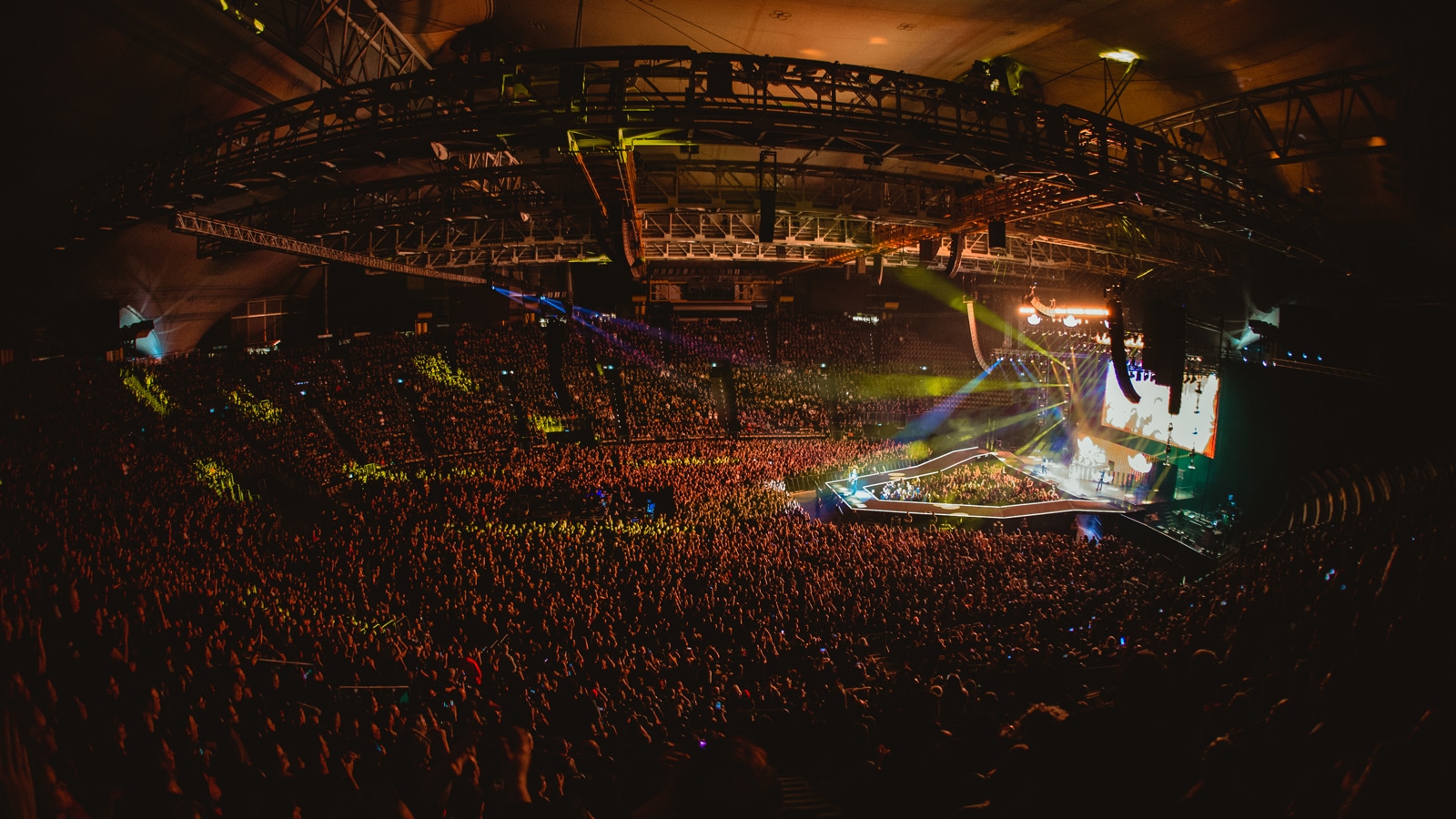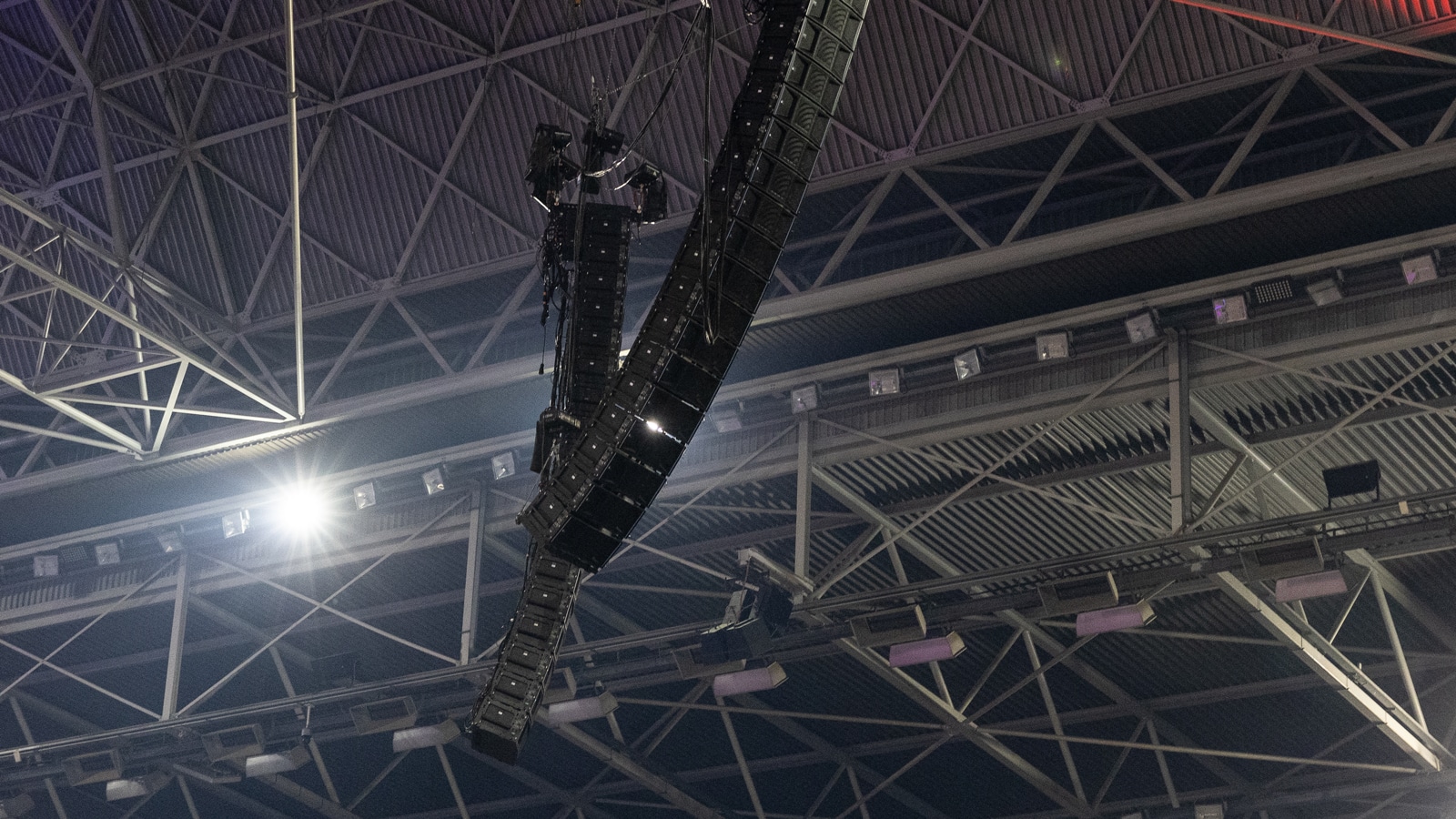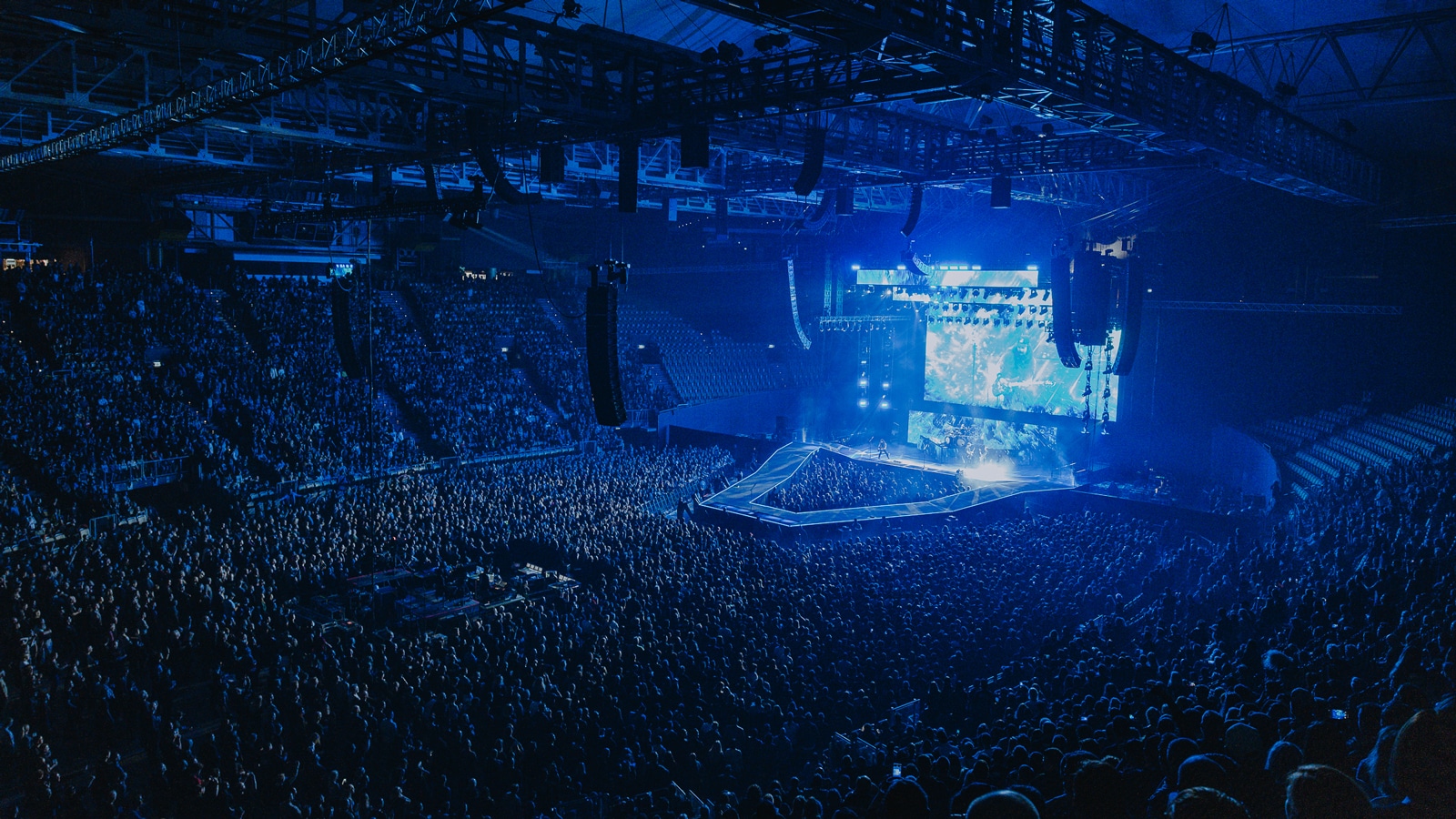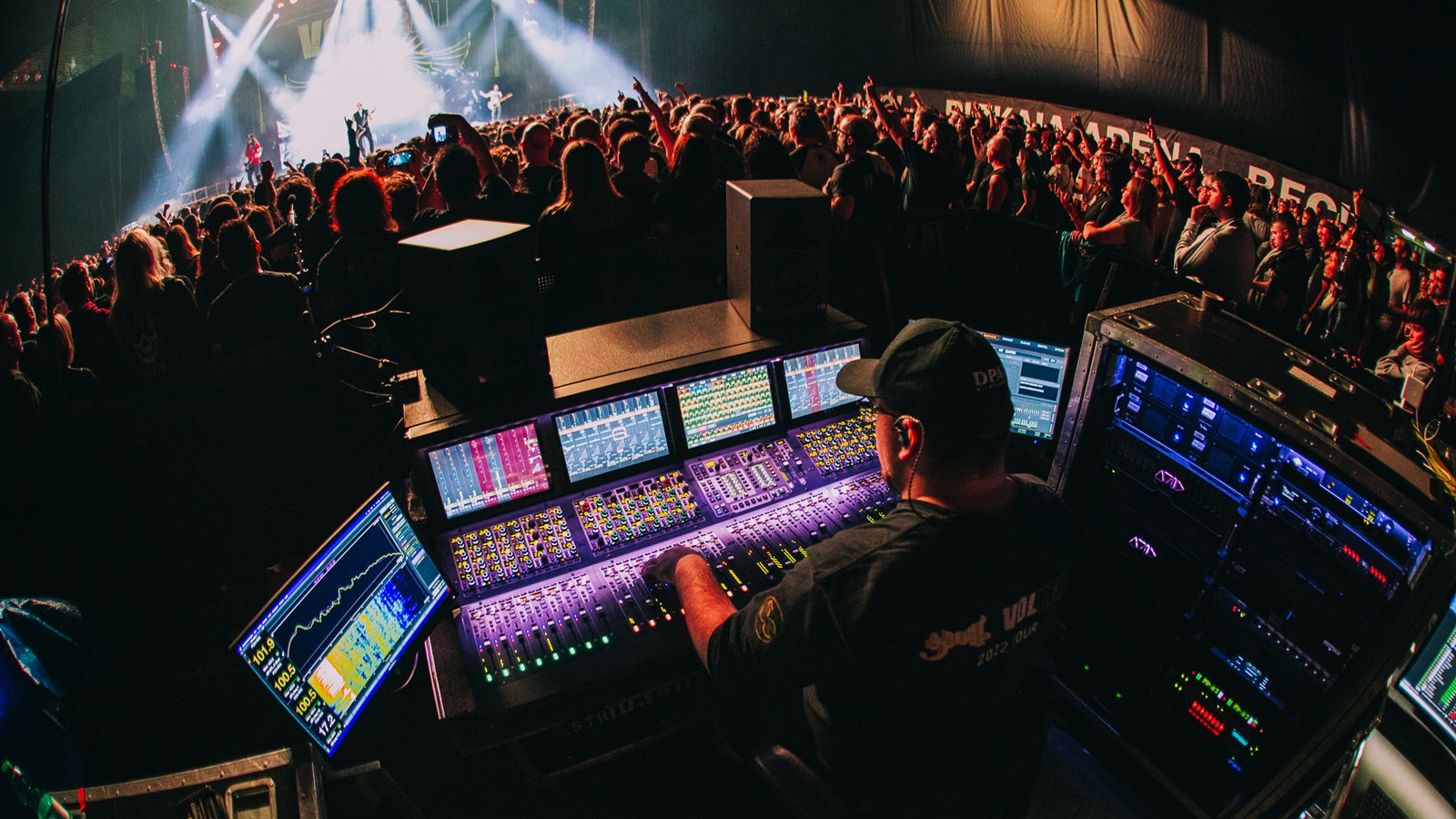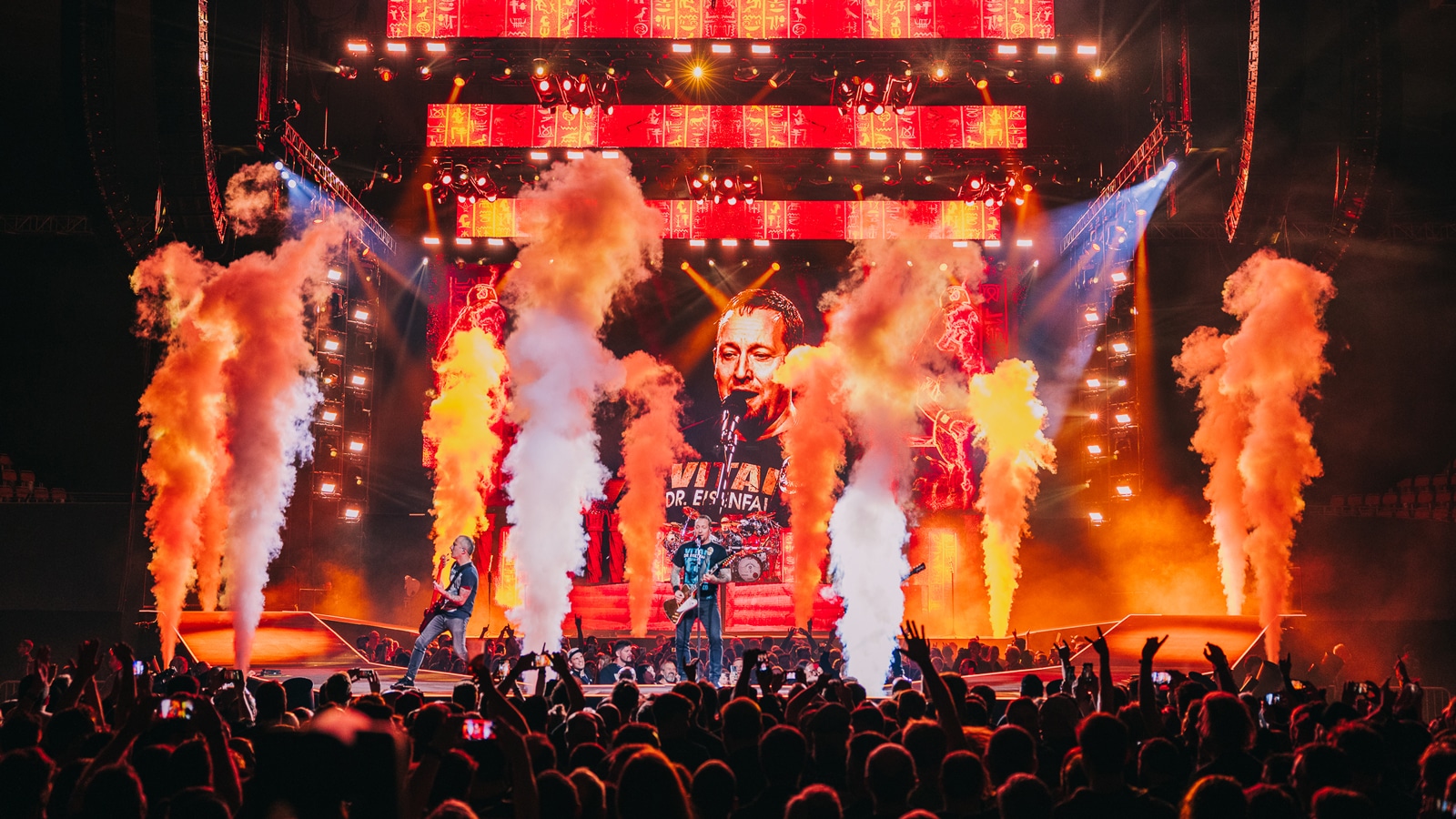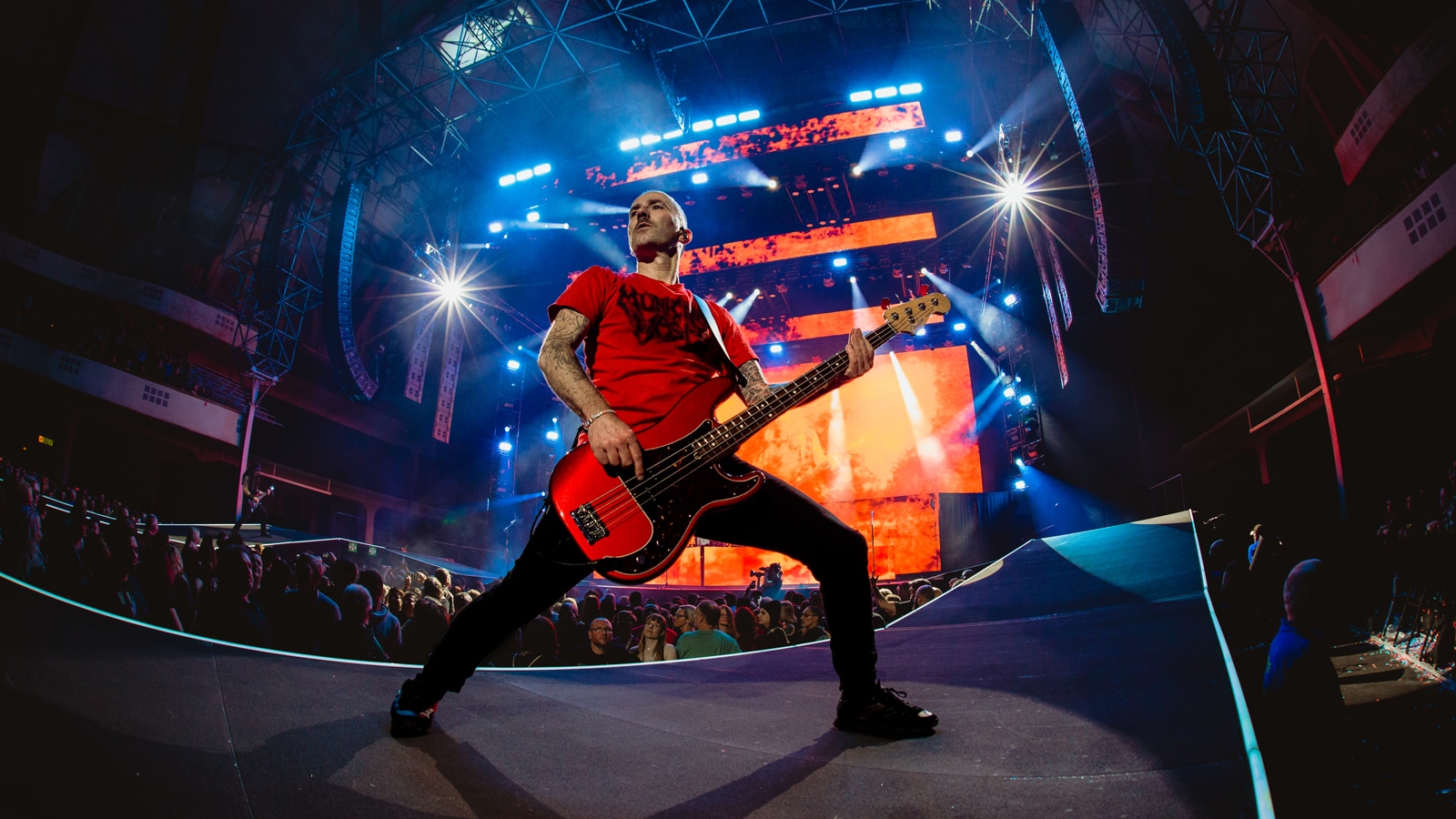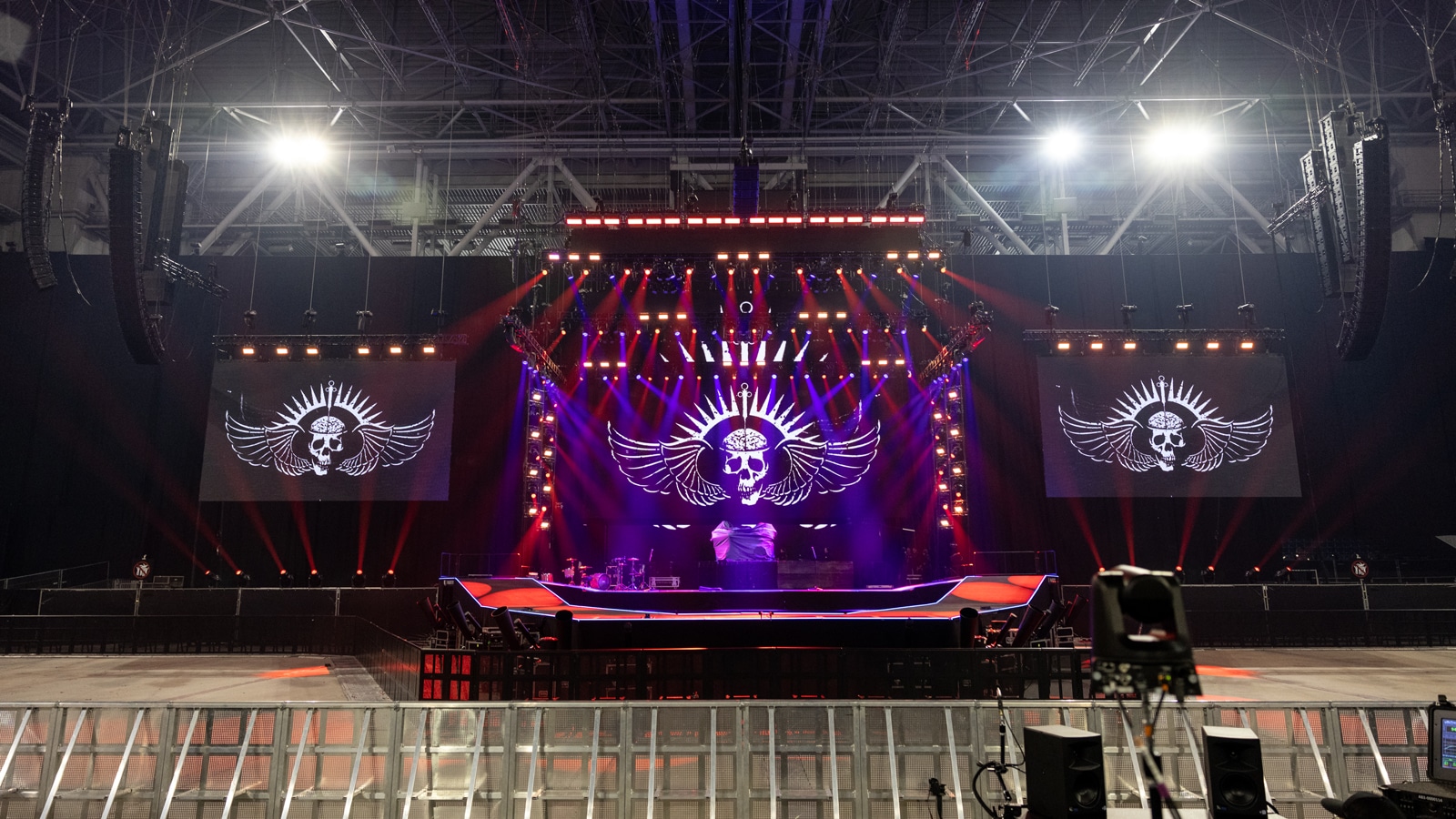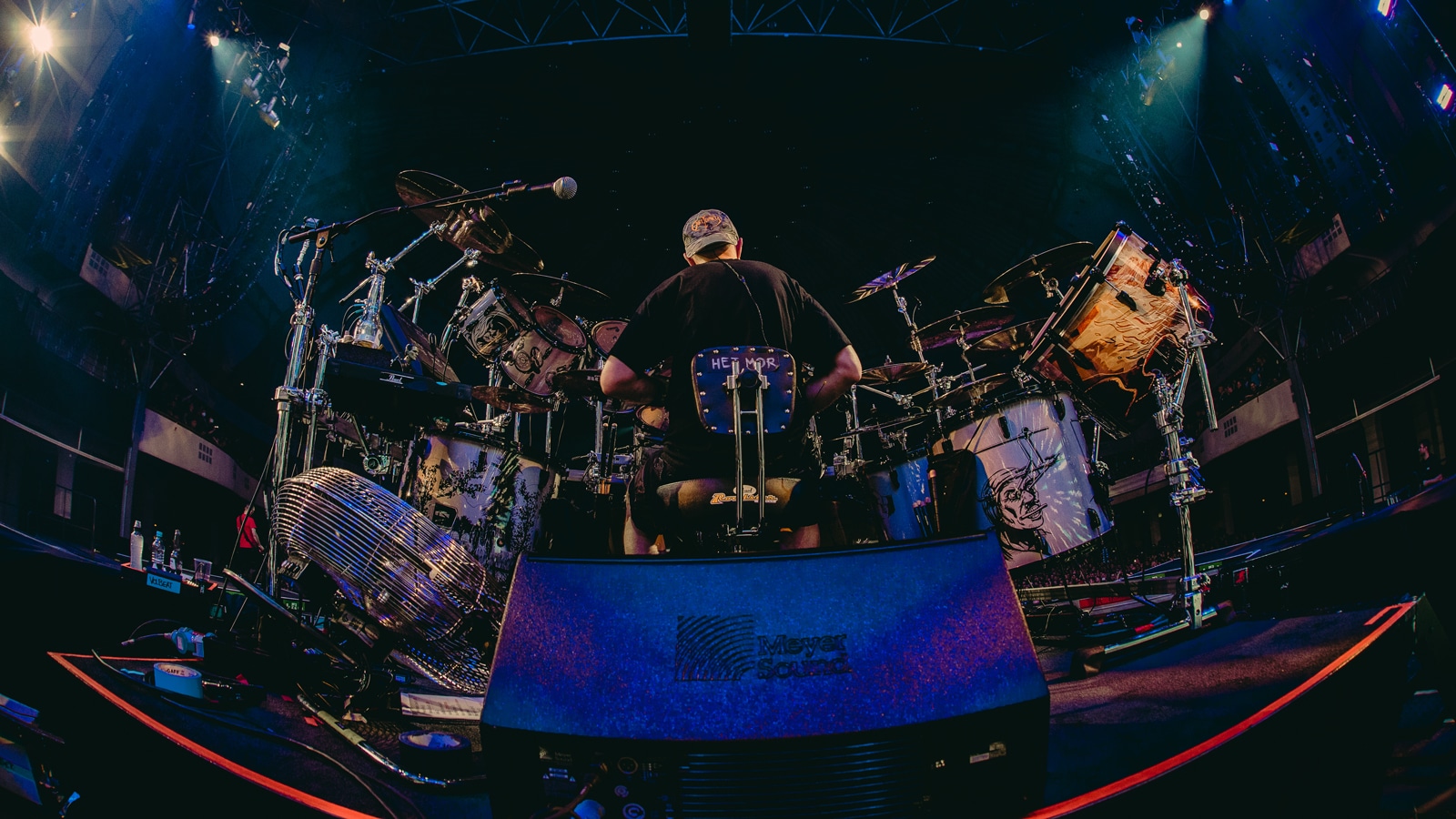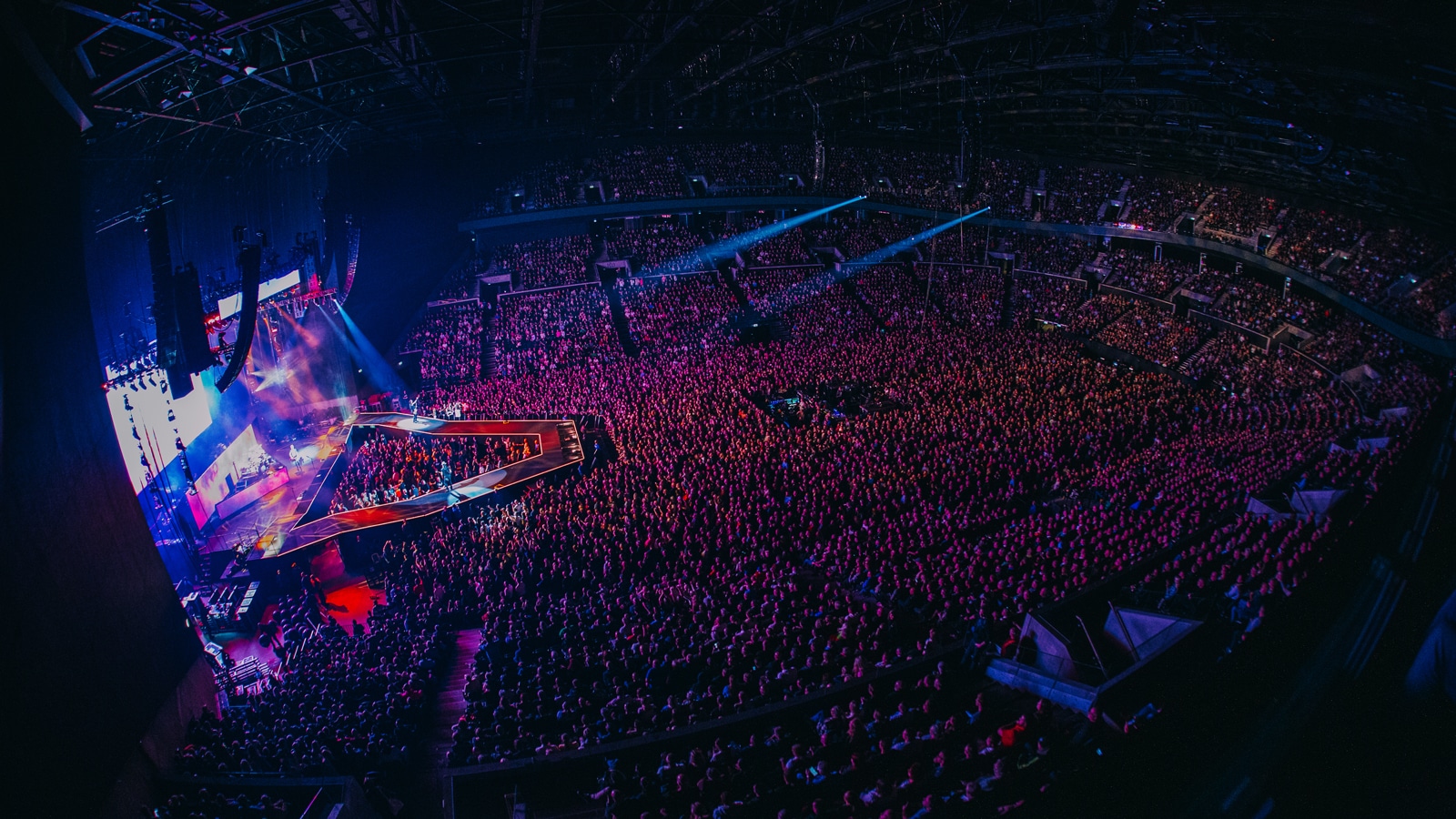We’re getting more even coverage throughout the venue, the rigging crews are less stressed, and management is happy because we’re not spending money on spreader trusses. PANTHER is good for the band and good for the fans as well as for the bottom line. ”
Dennie MillerFOH Mixer
With catchy hooks driven by pummeling rhythms, Volbeat’s intoxicating fusion of rockabilly, metal, and punk has built a loyal following since the Danish band launched in 2001. After co-headlining a North American tour earlier in the year, Volbeat closed out 2022 on the three-month European/UK leg of their Servant of the Road World Tour. While the springtime tour carried a Meyer Sound LEO Family system, this leg of the Servant of the Road World Tour was powered by new PANTHER large-format linear line array loudspeakers supplied by POOLgroup of Emsdetten, Germany.
The venues on the tour spanned a wide range of capacities, from halls and arenas to over 30,000 at a roofed football stadium in the Netherlands. Ensuring that all Volbeat fans enjoyed the same experience at every seat in every venue — while drawing from a common production package — presented a challenge for the tour’s audio team, led by systems engineer-turned-FOH mixer Dennie Miller.
“We have a directive straight from the band that every fan will have the full impact of the sound, regardless of where they are sitting,” says Miller. “That’s not easy, particularly in light of the stringent maximum level restrictions in Europe, where they measure relative to the loudest point in the venue. That’s why we use delays in all but the smallest venues, because of the level loss due to distance. But fortunately, because PANTHER is self-powered and relatively lightweight, it is much easier to find optimum rigging points for the delays and scale the system as needed on a daily basis.”
After laying out the tour’s network infrastructure in Meyer Sound’s Nebra system management and monitoring software, creating a default snapshot encompassing the largest system configuration, Miller then worked with tour systems tech Samantha Boone to scale the system as needed for each venue.
“Having a smaller and lighter PA is no doubt a game-changer,” Miller continues. “Sure, it’s one thing to say we could carry the extra truck and bring in spreader trusses to handle the weight. But now, with PANTHER, we can approach management and show that we are making strides toward being more efficient and cost-effective.”
The maximum system configuration on the tour was deployed at the Netherlands’ GelreDome football stadium. Here, the main left and right hangs each flew 22 PANTHER loudspeakers, with 18 PANTHER loudspeakers flown in the two outfill arrays as well as in each of the four delay arrays. Primary low-frequency coverage was supplied by four hangs each with 12 1100-LFC low-frequency control elements, configured as left and right end-fire arrays. Coverage for the tour’s “Parasite Pit,” a viewing section for 200 fans built inside of the stage, was handled by a single downward-aimed array of six PANTHER loudspeakers, augmented on the low end by 15 900‑LFC compact low-frequency control elements on the floor.
All loudspeakers were networked for comprehensive monitoring on the Nebra software platform, with audio transported between the 16 Galileo GALAXY 816 Network Platforms using the Milan AVB protocol.
Miller contends that the newfound flexibility of PANTHER is not only saving time and money but also resulting in a better sound for the audience. “With such an incredible reduction in weight for the same power, we’re finding we can now fly the subwoofers where before we could not because of weight restrictions. This is a huge stride forward. We’re getting more even coverage throughout the venue, the rigging crews are less stressed, and management is happy because we’re not spending money on spreader trusses. PANTHER is good for the band and good for the fans as well as for the bottom line. The sound is powerful, it’s visceral, and it’s in your face when you need that. What’s not to like?”
Miller also gives a tip of the hat to Meyer Sound’s suite of software tools, the MAPP 3D prediction program in particular. “It’s been an absolute godsend,” he says, “particularly in dealing with acoustically problematic venues. A great example is Frankfurt’s Festhalle with its domed roof and curved balconies. We thought we had done a good job in the past, but when we looked again in MAPP 3D we saw we were missing the mark. We rigged it differently this time and it was a quantum leap forward. We essentially cut the RT time in half.”
Sharing in the tour’s successful team effort, in addition to Boone, were POOLgroup Account Manager Johannes Rosel, Tour Manager Guy Sykes, and Monitor Engineer Pat Rowe, with the latter riding herd on 20 Meyer Sound MJF‑210 stage monitors built into the staging deck. Miller mixed FOH using an Avid S6L while Rowe worked behind a Midas Pro X console. POOLgroup supplied the Meyer Sound house system and monitor loudspeakers, while the front-end FOH and monitor control packages came from UltraSound of Petaluma, California.
The European/UK leg of Volbeat’s Servant of the Road World Tour, in support of their 2021 release Servant of the Mind, opened in Hamburg on October 17 and, after sweeping through 15 intermediate countries, closed in London on December 20.
POOLgroup is one of Europe’s leading event production companies, with 45 years of experience in live entertainment touring as well as corporate and governmental events. POOLgroup has more than 150 employees working out of the Emsdetten headquarters and three other locations.

